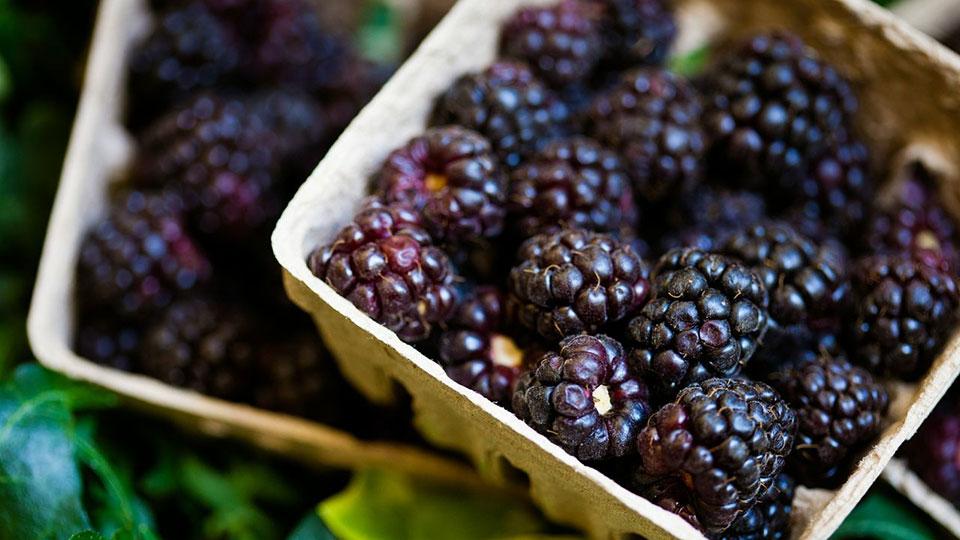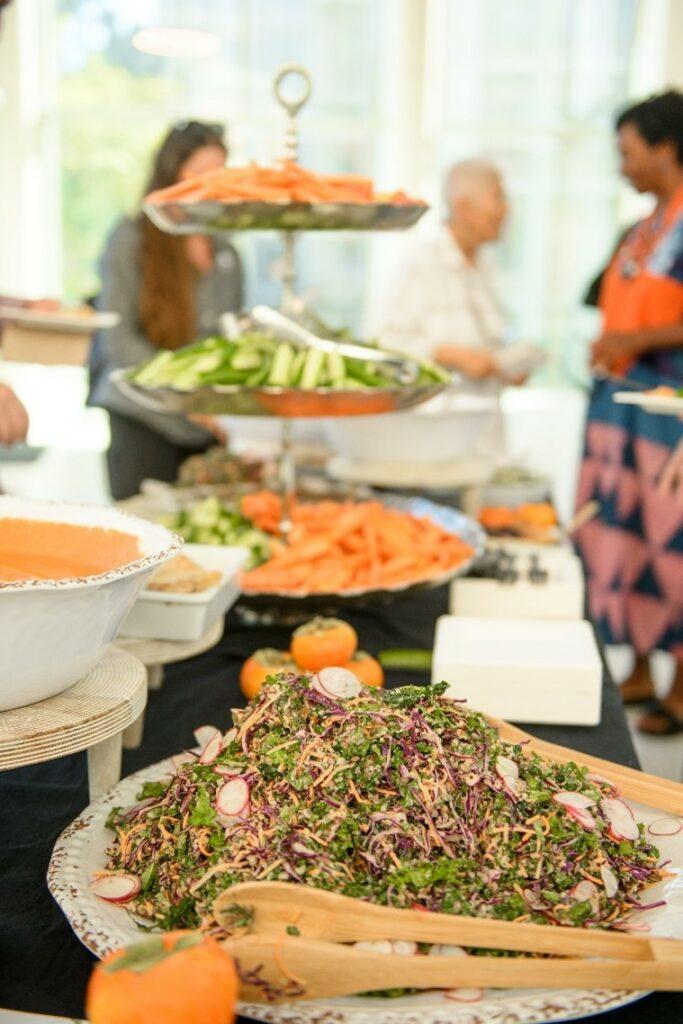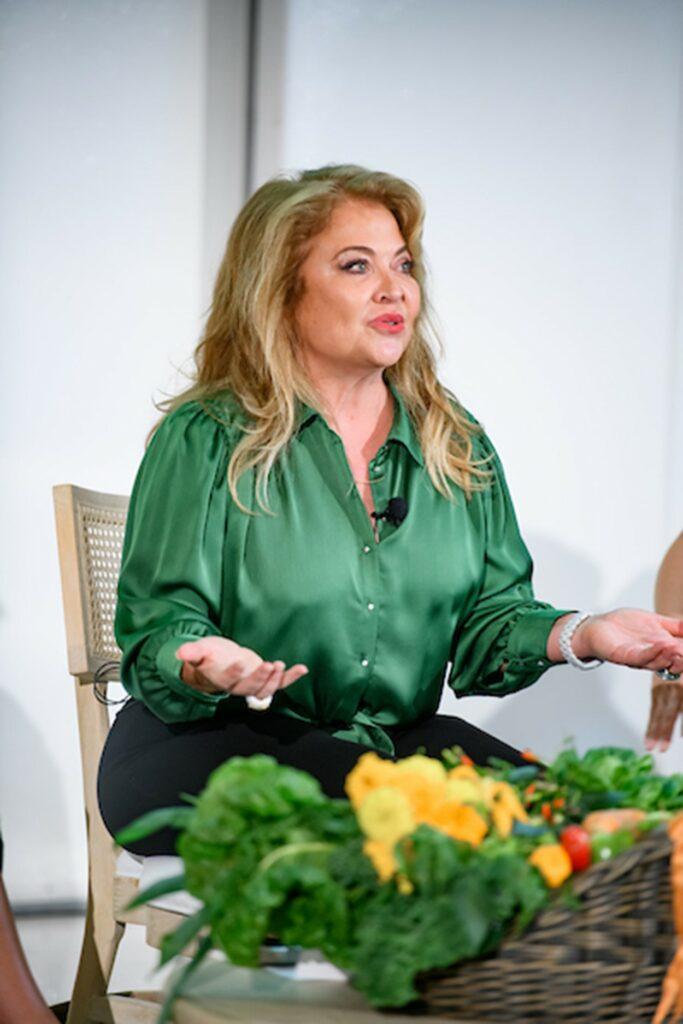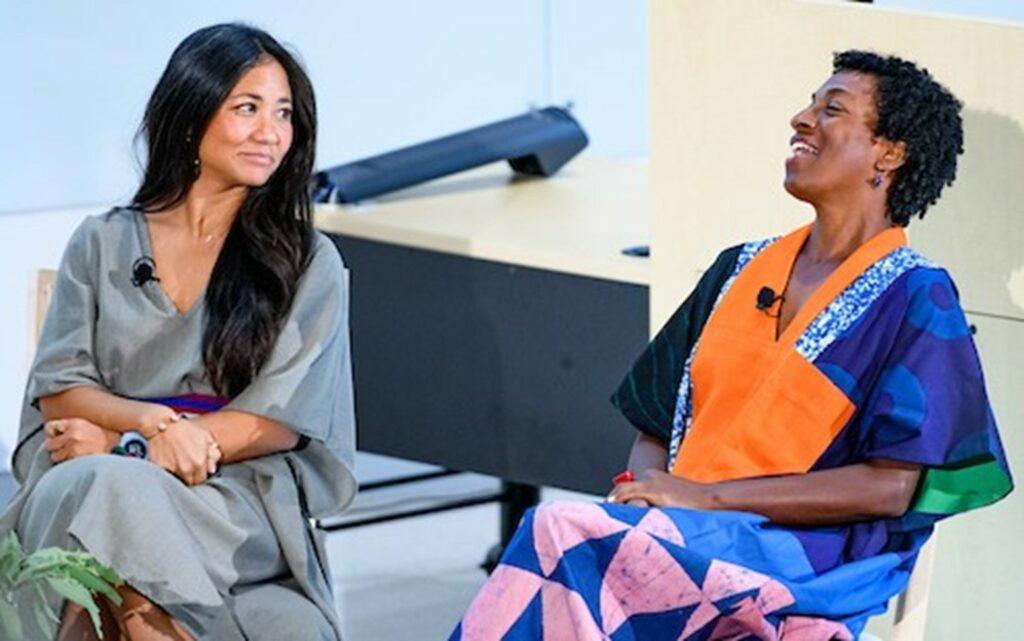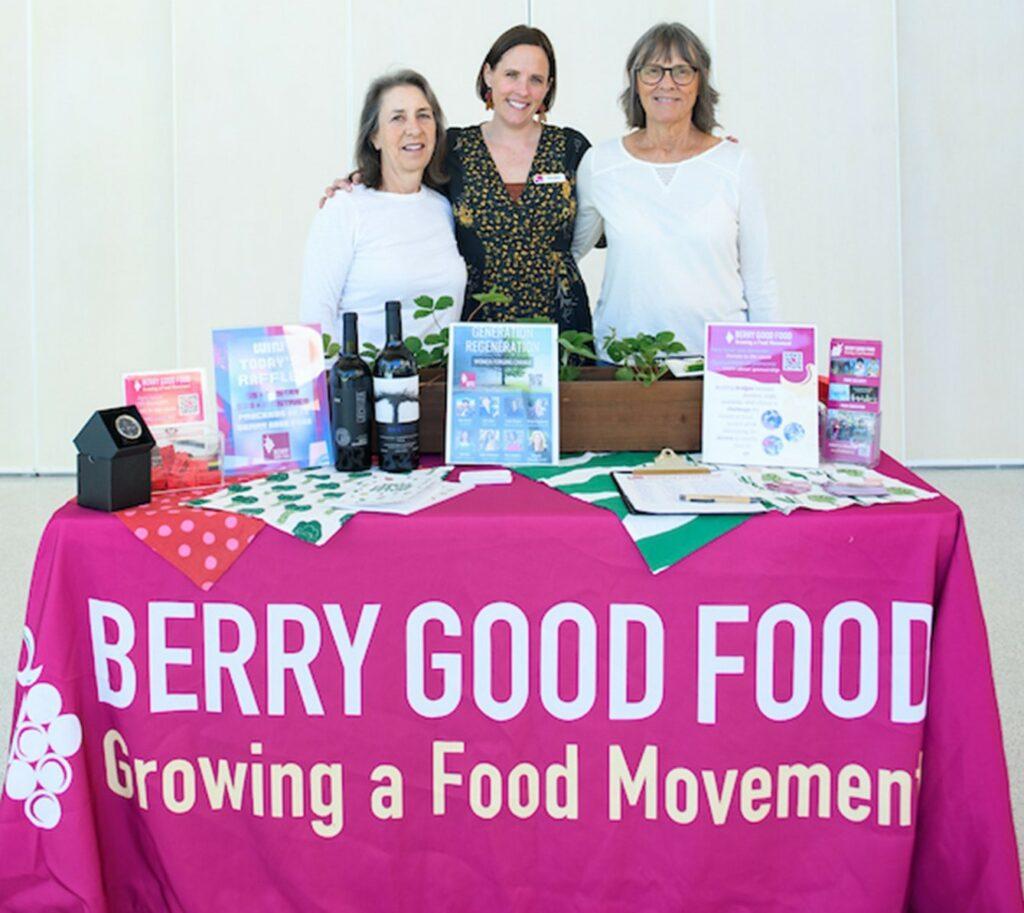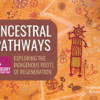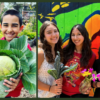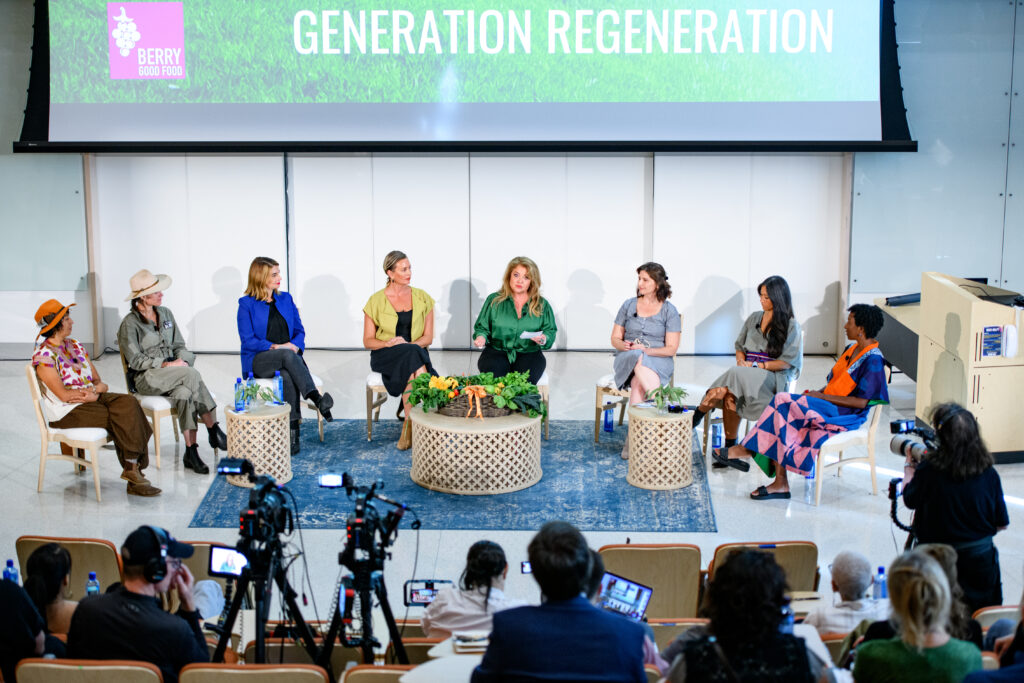
An all-female panel led a fascinating discussion at UCSD for BGF’s 12th panel, “Generation Regeneration.” (All photos: J.Dixx Photography)
On November 4, 2023, Berry Good Food’s 12th Future Thought Leaders panel discussion, “Generation Regeneration: Women Forging Change,” featured moderator and Berry Good Food founder Michelle Ciccarelli Lerach in discussion with seven other influential women leading the regenerative food movement on both sides of the U.S./Mexico border. The event, held at University of California San Diego’s Jeannie room in La Jolla, focused on creating a healthier food system, food security, and a balanced economy through regenerative practices and equitable access to food. The panel delved into topics such as regenerative agriculture, locally sourced food production, and the importance of interconnectedness in fostering a sustainable food supply for future generations. The discussion emphasized the need to redefine the term regenerative and highlighted the efforts to establish a statutory definition to prevent greenwashing in the industry.
Before the panel commenced, attendees enjoyed a spread of locally sourced plant-forward bites prepared by Chef Flor Franco and Chef Christina Ng – a perfect segue into a conversation around the importance of how our food is produced, the distance that it travels, and the amount of energy that goes into the process.
Panelists Bea Alvarez, Lily Foster, Lesley Kroupa, Kristin Magnussen, Elle Mari, Keiko Nishikawa, and Mia Vaughnes all shared insights on diverse aspects of regenerative food practices. Bea Alvarez emphasized equitable food distribution by supporting local micro-regenerative farms, while Lily Foster advocated for viewing agriculture as building resilient ecologies to address climate change. The conversation also touched on the longevity of vineyards, with Keiko Nishikawa and Kristin Magnussen highlighting innovative water preservation methods and technology-driven water conscious systems. Elle Mari emphasized the importance of a regenerative mindset, focusing on strengths and fortifying community support.
As always, Michelle Ciccarelli Lerach masterfully led the conversation but first wanted to start the conversation off by citing the Cambridge Dictionary’s definition of regenerative – “something growing or being grown again,” and also as “the improvement of a place or system, especially by making it more active or successful.” She noted that it is often used as a substitute for sustainable or recycled, but that the term regenerative encompasses a fundamental shift in thought and action, and goes beyond sustainability or recycling.
Jumping in, Lesley Kroupa shared that regenerative is a new term that is evolving, and wholeheartedly believes that it is incredibly important to come to a consensus on what it means. She explained that the state of California is the first state to begin working on statutorily defining the term. The reasoning comes from a commercial standpoint to reduce the issue of greenwashing akin to the efforts that were made and passed by the federal government in 2000 for the term organic. It was surprising to the audience to learn that these advancements are so recent but there was an air of gratitude amongst the crowd that at least there are some protections in place for both consumers and producers.
Mia Vaughnes shared that she teaches her elementary-aged students an entire curriculum around the topic and the subject matter focuses heavily on thriving, not surviving. When she started Good Neighbor Gardens in 2013, she felt that people were atomized, and that the idea of interconnectedness and that we’re a people of abundance wasn’t universally understood. She encourages her students to identify themselves as a living organism which she explains further as “a collection of individual parts that work better together than separately – that’s regeneration.”
As the conversation progressed, we heard from Bea Alvarez regarding FoodShed’s focus on equitable food distribution by working with local micro-regenerative farms, particularly those owned and operated by BIPOC and women. These farms primarily support members of their communities, emphasizing a hyper-local approach to food production. By keeping the focus on local food production, FoodShed reduces the distance that food travels, thereby minimizing the carbon footprint of each farmer. This approach aligns with the goal of creating a more environmentally sustainable and equitable food system.
Lily Foster, a regenerative farmer, emphasized the importance of viewing agriculture as building resilient ecologies. She encouraged farmers to consider the impact of climate change on crops and to work with nature rather than against it. Foster highlighted the need to understand how the environment is changing and how crops are reacting differently, advocating for a shift in mindset towards regenerative farming practices. Additionally, she emphasized that many of these approaches are not new, but have been around for centuries, and need to be re-adopted to preserve the health of the food supply for future generations.
This sentiment sparked a thought for Michelle, who redirected the conversation over to the Baja winemakers to address water conservation and sustainability in their vineyards through innovative and environmentally conscious practices. Keiko emphasized the importance of inventive ways of preserving water, such as allowing fallen leaves and branches to create natural ground cover and eventual compost, which helps soil retain moisture and infuses it with beneficial nutrients. This approach is a no-cost, no-frills method that supports sustainability. On the other hand, Kristin sources water from an aquifer and uses technology-driven water-conscious drip systems with pop-up sensors that activate and deactivate the water flow. Additionally, she has chosen to remain a small producer, prioritizing the health of land over financial gain, which contributes to a more sustainable and environmentally friendly approach to winemaking. These practices demonstrate a commitment to sustainable water conservation and environmental stewardship in their vineyards.
Michelle shifted the focus over to Elle Mari who wanted to circle back to something Michelle said earlier in the conversation about “regenerative thinking” and how it’s a mindset. Elle approaches her work from a place of “strength” and not always “needs.” She likes to look at the issue at hand of what is going right, not what is going wrong, and build from there. Through positive thinking and the acquisition of fortifying support, she believes that people can find ways to help themselves within their community and often not have to look much further than that.
Overall, the panel discussion showcased a diverse range of perspectives and initiatives aimed at transforming the food industry towards regenerative practices. The event emphasized the significance of redefining regenerative, promoting equitable food systems, embracing traditional sustainable methods, and fostering a mindset focused on the strength of community support. The impact of the discussion was evident in the resonance of a young Native American woman’s statement during the Q&A that reinforced the importance of continuing such conversations to inspire positive change in the future. It was such impactful feedback that resonated with everyone in attendance and exactly why we hold these free public discussions. Her words are still inspiring us! Stay tuned in 2024 for a panel based on that conversation.
Thank you to UCTV, Chef Flor Franco, Chef Christina Ng, Solar Rain Water Co., Lechuza Winery, Santo Tomas Winery, Nixon Watches, J. Dixx Photography, and our team of dedicated volunteers.
Catch up on all of our Future Thought Leaders panel discussions here.
